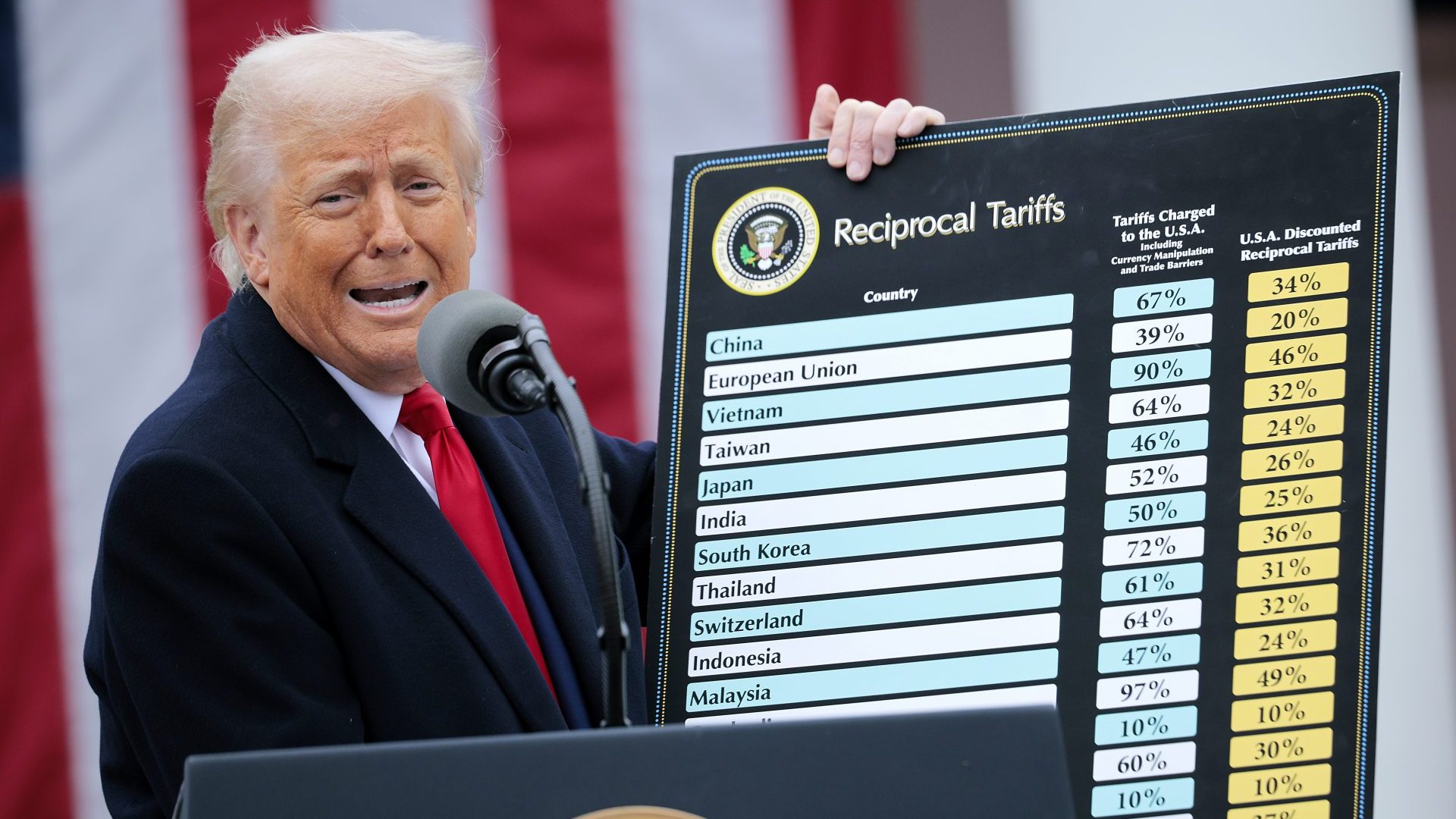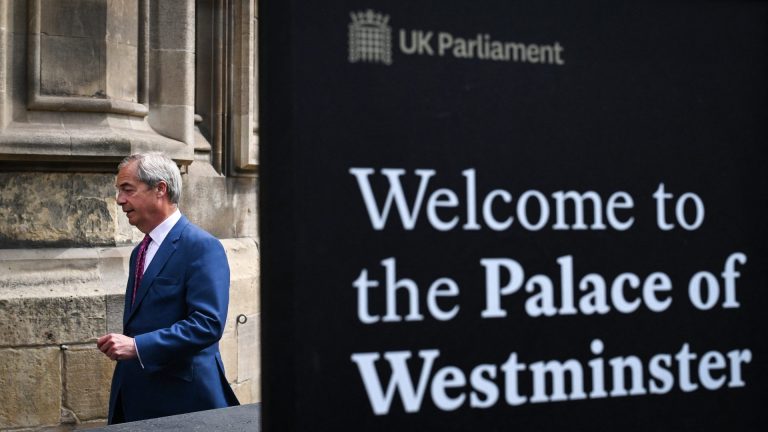Donald Trump’s tariffs may be threatening to make financial depressions great again, but one thing has been given an unexpected boost – the Brexiteer sport of speed wishful thinking.
No sooner had Trump announced that UK products would face import taxes of 10% while those from the European Union would be hit by 20% (tariffs that will be paid by American consumers and make already rising US inflation rise even faster) than the chorus began.
“Trump just proved Brexit was the best decision Britain ever made” roared Matthew Lynn in the Telegraph. “It is an absolute godsend that the UK is no longer a member of the EU and, therefore, will not have to go down this route [of reciprocal tariffs],” beamed Jacob Rees-Mogg on his Substack. “Trump’s tariffs mark a real Brexit win” cheered the Spectator, edited by Brexit’s scourge of experts Michael Gove. “Remainers take note – Trump’s 20% EU tariff means Brexit doesn’t look so bad now” smiled the Express.
All echoed the line peddled by shadow trade secretary Andrew Griffith, who said: “Brexit, which Labour ministers voted against no less than 48 times, means that we face far lower tariffs than the EU: a Brexit dividend that will have protected thousands of British jobs and businesses.”
We will come to the easily spotted flaw with this analysis in a moment, but first, a special mention for Lynn, whose exceptionally sunny piece contained a series of bizarre ideas. He foresees a Trump boom for Britain, now “with a clear competitive advantage over the rest of Europe. For Americans, a Scotch will be cheaper than Cognac, and Burberry cheaper than Hermes, but still with a luxury feel.” No doubt all this will be viewed as a huge boon by low-paid workers in Wisconsin struggling with the cost of eggs. It is not the stuff that booms are made of.
Lynn believes that the UK will negotiate its tariffs down even further but the EU will not be able to do similar, yet offers zero evidence as to why a huge trading bloc might be rendered completely powerless when Canadian feistiness in the face of Trump’s threats seem already to have had some impact.
And he sees EU-headquartered manufacturers ramping up production in their UK factories of goods for US export, while “a few may even move completely.” But the latter is a long-term play, and surely no-one will rush to make such huge calls when Trump’s plans may yet change significantly on contact with reality. Isn’t a potentially far bigger win for the UK to be found in making it considerably easier to do more business with our closest trading partner, the EU?
Meanwhile, Rees-Mogg was hedging his bets. “Whisper it quietly, but possibly, just possibly, Trump could be about to give the biggest fillip in history to global trade,” he began, boldly. But the rejoicing was short-lived.
Just a paragraph later, the former Brexit opportunities minister was conceding that “there is the other possibility, that other countries respond by imposing additional tariffs of their own, leading to a global trade war, which would be a disaster”. Still, he wanted us to be hopeful: “Although it may be that Trump is mad and that a slump of the 1930s kind is about to hit us, it is not necessarily so.”
A reminder here that Jacob Rees-Mogg – who admits that Trump may well be insane and leading the world towards a brutal economic meltdown – supported Donald Trump in the last presidential election, donning a MAGA baseball cap for the amusement of his viewers on GB News. No-one will be laughing about the UK’s mild tariff let-off if a Great Depression 2.0 hits. But then no-one actually laughed at the baseball cap, either. Winning by losing is very Brexit, though.
So what about the numbers? The Office for Budget Responsibility’s earlier predictions of what the Trump tariffs might mean suggested a hit to UK GDP of 0.4%, rising to 0.6% next year. Double that for the EU, and the hit we might have taken as a member looks like 0.8%-1.2% of GDP.
But as we all know by now, the OBR continues to insist that Brexit will cost us 4% of GDP. Selling these tariffs as some kind of proof that leaving the EU was justified is therefore at best an act of straw-clutching self-delusion. At worst it is desperate dissembling.
Still, the dwindling band of Brexit true believers like Lynn will go on insisting that “Trump just proved Brexit was the best decision Britain ever made”. It is a prediction that sounds about as useful as the one he made in 2007 – that Apple had created “a luxury bauble that… will sell a few to its fans, but the iPhone won’t make a long-term mark on the industry”.












